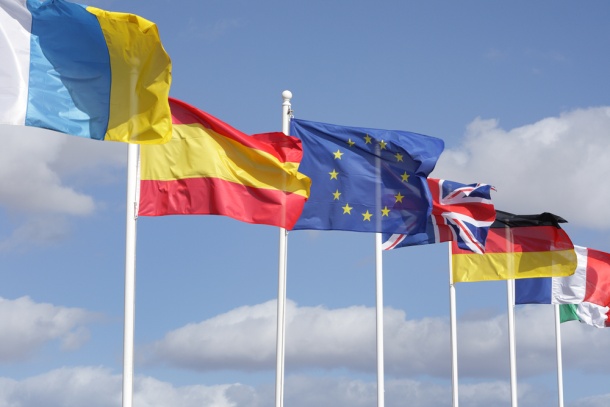UK signs ACTA as activists urge resistance

The UK and 21 other European Union member states have signed the Anti-Counterfeiting Trade Agreement, better known as ACTA.
The countries signed the treaty, which aims to harmonise copyright enforcement across much of the world, in Tokyo on Thursday. However, the signatures of the EU member states and the EU itself will count for nothing unless the European Parliament gives its approval to ACTA in June, and digital activists have urged citizens to lobby their MEPs against voting yes.

Only five EU countries did not sign ACTA, which aims to harmonise copyright enforcement.
Poland, which was one of the signatories, saw thousands demonstrate in the streets on Wednesday, protesting against the signing.
An EU diplomat also added his signature. However, five EU countries did not sign, namely Germany, the Netherlands, Estonia, Cyprus and Slovakia. Many other countries, such as the US, Japan and Australia, signed the document in September.
Although ACTA is primarily concerned with the enforcement of intellectual property rights (IPR), its designation as a trade treaty meant it could be negotiated behind closed doors. This lengthy process, led by the US and Japan, was exposed in a series of leaks — some via Wikileaks — that revealed what was going on.
The final version of ACTA is very different to earlier drafts, which would have forced countries to disconnect internet users if they were found to be repeatedly sharing copyrighted content. The EU rejected this proposal, and other ideas, such as criminalising the use of a mobile phone camera in a cinema, also fell by the wayside.
The European Commission maintains that ACTA will not require any legal changes in the Union. It argues that the treaty will align IPR enforcement standards in other countries with those already enshrined in EU legislation.
"It simply does not change EU law," trade commission spokesman John Clancy told ZDNet UK. "The freedom of the internet that existed before — people's access and the way they use the internet — will not change because of ACTA."
"The ACTA agreement is about trying to bring other key partners' standards of intellectual property protection up to the level of the EU and other leading players in IPR," he said.
Threat to freedom of speech?
Others say the toned-down treaty still poses a threat. La Quadrature du Net, for example, has complained that ACTA will lead to harsher copyright infringement laws in non-EU countries lacking the freedom-of-speech safeguards of the EU. The French digital rights organisation has also argued that the agreement will make it harder to make and distribute generic medicines.
"In the last few days, we have seen encouraging protests by Polish and other EU citizens, who are rightly concerned with the effect of ACTA on freedom of expression, access to medicines, but also access to culture and knowledge," La Quad spokesman Jérémie Zimmermann said in a statement.
"This important movement will further build up," Zimmermann added, noting the defeat in the US of the SOPA and PIPA copyright enforcement bills. "European citizens must reclaim democracy, against the harmful influence of corporate interests over global policy-making."
European Parliament vote
Regardless of the signatures that took place on Thursday, ACTA will not become EU law if the European Parliament votes against it in June. Should this happen, the signatures of the 22 EU member states and the EU itself would effectively be worthless.
The treaty will first have to be discussed by the EU International Trade Committee (INTA) at the end of February or in early March, then voted on by INTA in April or May.
The key final plenary vote is scheduled to take place in the European Parliament between 11 and 14 June. Until then, according to MEP and INTA member Marietje Schaake, the "confidence boost" following the defeat of SOPA and PIPA may provide a chance to head the new treaty off.
"If you are concerned about ACTA, you can convince the EP to vote against ACTA," Schaake noted on Wednesday in a Reddit post. "In November 2010 we proposed an alternative resolution on ACTA, which intended to take away the main concerns. It was voted down by a very slight majority [... ] the difference is only 16 votes, out of 736 (or 754 as it stands now)."
"I believe internet offers tremendous opportunities to bring makers of music, film and other cultural content closer to audiences at lower prices," Schaake wrote. "However, while Europe offers the most attractive and diverse content in the world, much of it is locked behind fragmented copyright laws. Instead of focusing on enforcement, we must focus on reform, while keeping in mind that it is not the government's job to preserve certain business models against the forces of the free market."
Commission spokesman Clancy also pointed to the importance of the
creative industries to the EU economy, referring to intellectual
property as "Europe's raw material".
However, while Clancy said the Commission urged MEPs to back ACTA, he conceded that "if they say no, it's entirely rejected — it's back to the drawing board".
"The signature ceremony in Tokyo was just another step in the procedure that allows ACTA to now be taken to the European Parliament for a free, open and vigorous debate that we fully support," he said.